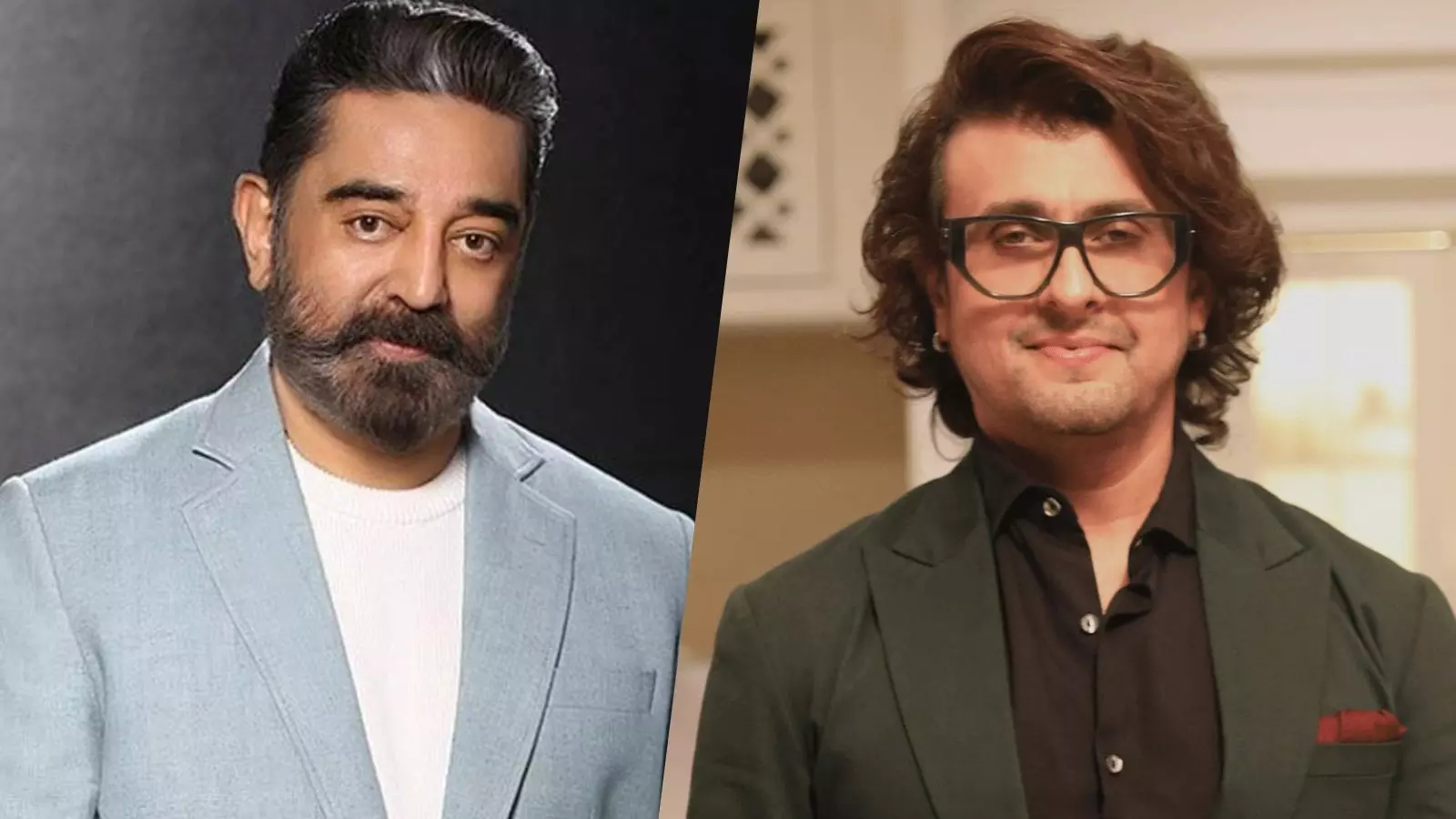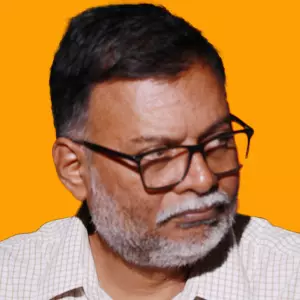
- Home
- India
- World
- Premium
- THE FEDERAL SPECIAL
- Analysis
- States
- Perspective
- Videos
- Sports
- Education
- Entertainment
- Elections
- Features
- Health
- Business
- Series
- In memoriam: Sheikh Mujibur Rahman
- Bishnoi's Men
- NEET TANGLE
- Economy Series
- Earth Day
- Kashmir’s Frozen Turbulence
- India@75
- The legend of Ramjanmabhoomi
- Liberalisation@30
- How to tame a dragon
- Celebrating biodiversity
- Farm Matters
- 50 days of solitude
- Bringing Migrants Home
- Budget 2020
- Jharkhand Votes
- The Federal Investigates
- The Federal Impact
- Vanishing Sand
- Gandhi @ 150
- Andhra Today
- Field report
- Operation Gulmarg
- Pandemic @1 Mn in India
- The Federal Year-End
- The Zero Year
- Science
- Brand studio
- Newsletter
- Elections 2024
- Events
- Home
- IndiaIndia
- World
- Analysis
- StatesStates
- PerspectivePerspective
- VideosVideos
- Sports
- Education
- Entertainment
- ElectionsElections
- Features
- Health
- BusinessBusiness
- Premium
- Loading...
Premium - Events

Actor Kamal Haasan, by his remark, willy-nilly opened up deep and prickly fault lines that have existed between Kannadigas and Tamils for decades
Actor Kamal Haasan probably thought he was dipping his hand into a treacle of honey when he described the Kannada language as being born out of Tamil, only to find that his fingers had actually poked a hornet’s nest.
The (predominantly) Tamil actor probably has not been keeping track of all the news emanating from Bengaluru and Karnataka over the perceived disrespect for Kannada by celebrities and commoners alike in recent times. If Kamal Haasan had, he would have probably been cautious about what he was saying about the language at an audio event in Chennai linked to the launch of his latest film Thug Life.
Also read: 'Tamil not mother of Kannada': Scholar debunks Kamal Haasan's claim
Sonu Nigam’s puzzling remark
In recent times, Kannadigas in general — not just language activists — have expressed consternation over what they see as disdain for their language by “outsiders” who have either made Karnataka their home or have professionally benefitted from the state, in particular, from Bengaluru city.
A few weeks ago, popular singer Sonu Nigam, who has an array of super-duper hits in Kannada, appeared to reprimand a student who was asking for a song in the local language. Nigam, during the concert, had belted out one Hindi song after another. In response to the student’s demand for a Kannada song, he remarked that “this is the reason for what happened in Pahalgam”.
It was not clear what the singer meant by his remark, but it managed to trigger outrage across the state. The remark was interpreted to mean that such demands by locals led to instances like the Pahalgam massacre, and this incensed many, including even Sonu Nigam’s fans, no end. The singer reluctantly apologised in the face of the film fraternity’s threat to ban him and his songs from the state.
Also read: Group of boys in audience threatened me to sing in Kannada: Sonu Nigam after FIR
Sibling rivalry
Kamal Haasan, however, is holding out, refusing to apologise. The release of Thug Life, scheduled for June 5, is being put off in the state as a consequence. Despite the actor’s purported clarification that his remark was made “out of love”, the anger has not subsided.
Haasan, by his remark, willy-nilly opened up deep and prickly fault lines that have existed between Kannadigas and Tamils for decades. The competition and one-upmanship that have existed between the two linguistic communities go back in time — akin to sibling rivalry, which is generally marked by a complicated tangle of closeness and apartness.
The young historian Anirudh Kanisetti in his much-acclaimed book, Lords of the Deccan, alludes to the interesting relationship between the two languages as having existed even from the time of the Chalukyas, Cholas, Kadambas and the Rashtrakutas, some 1,500 years ago.
Also read: Ask Kannada stars not to dub movies in Hindi: Sonu Nigam dares MP Surya
Rivalry and camaraderie
Since the 1970s, the rivalry has come up in various new forms. To match the iconic actor and politician MG Ramachandran, or MGR, in Tamil, there was an equivalent Rajkumar in Kannada, who however did not venture into politics but was publicly active in pushing for prominence to the language. Yet, personally, Rajkumar, MGR and now Rajkumar’s son Shivarajkumar and Kamal Haasan share a great personal relationship, irrespective of a publicly-manufactured rivalry by the two linguistic groups.
Two Kannadigas — one from Mysore, J Jayalalithaa, and another a naturalised local, Rajinikanth (originally Marathi-speaking) — made it big in Tamil land. A legendary Kannada literary figure like playwright TP Kailasam was born in a Tamil family. So, too, was Masti Venkatesha Iyengar, another literary icon. The list is long, much longer than what one would expect of two feuding neighbours.
The liberal ethos of Bengaluru
Lest this sounds romanticised, the relationship’s sharp edges have taken a toll too, as in the Cauvery river water dispute. This sadly resulted in the anti-Tamil riots of 1991 when chauvinists in Bengaluru targeted Tamils in protest against the interim award of the Cauvery River Water Tribunal when the late S Bangarappa was Karnataka chief minister.
Bengaluru city, with its public sector industries including HAL, ITI, HMT, BEL and BEML and educational institutions like the Indian Institute of Science, has been a cosmopolitan melting pot right from the time Mysore state emerged in 1956, following the reorganisation of states. In fact, this is what fashioned the liberal ethos of Bangalore, now Bengaluru. In addition to the moderate climate through the year, the open-minded culture is what has made the city among the most sought-after in the country.
Also read: Kannada remark was ‘out of love’; not qualified to speak on language: Kamal Haasan
Arrival of migrants and marginalisation of Kannada
Over the last 25 years, since Bengaluru emerged as India’s foremost IT hub, the Kannada-Tamil rivalry receded into the background following the arrival of largely Hindi-speaking migrants from across the northern belt. The local population was welcoming of this new influx while many migrants were surprised by the level of cosmopolitanism that existed in the city. A common refrain from newcomers was, “You don’t even need to know Kannada. People here talk all languages.”
Paradoxically, this is what over time has resulted in the fraying of tempers among locals who realise that the lack of the need to learn Kannada has marginalised the language in day-to-day life.
Almost everyone in Bengaluru is a polyglot, knowing at least three languages, if not four. Local FM stations broadcast programmes entirely in Hindi and English 24/7, jostling alongside Kannada-centric channels. Hindi, Tamil and other non-Kannada movies run for months in cinemas across the state. This is possible as there is inherently no animosity per se against any other language.
Also read: ‘Poor Kamal Haasan’ unaware of Kannada’s long history, says Siddaramaiah
The refusal to learn Kannada
The issue is not even about the ignorance of the Kannada language among new settlers from other states. This is expected and there was never a dispute over it. A problem has arisen because sections of migrants openly and point-blank refuse to learn Kannada, including even the bare functional minimum, despite living in the state for several years.
With a burgeoning population, which is reportedly around 1.4 crore in Bengaluru, a majority of them non-Kannadigas, there is a perception that locals are being marginalised in their own state. And, when this plays out as a tiff on the roads and public spaces between locals and migrants, the issues tend to get blown out of proportion.
In an age of social media, every trivial dispute expands multifold in the public perception, demonising what essentially is a break in communication. Adding fresh bruises to an existing wound, celebrities like Kamal Haasan or Sonu Nigam inexplicably make statements that end up being perceived as disrespectful of Kannadigas.
Also read: 'Kamal Haasan respects Kannada deeply': Shivrajkumar’s first reaction on controversy
Uncalled-for behaviour
The issue as to which language was “born” first — Kannada or Tamil — by any reckoning, is an uncalled-for topic in today’s world. A professional actor, in almost all cases, is unsuited to discuss that on a public forum. As Kamal Haasan himself later conceded, it was up to historians to decipher which came first.
But, having put his foot in his mouth, the top actor with a huge following, even among Kannadigas, is now struggling to set the record straight. From all accounts, Thug Life is not even about language or anything linguistic. Whatever made the actor bring in something unrelated to his forthcoming movie is anyone’s guess. Unless, as film strategists say, any controversy before the release of a film guarantees its box-office success. In which case, he has had a surfeit of publicity, even if unpalatable for the film’s producers.
As for Sonu Nigam, there is no rational explanation as to why he refrained from singing Kannada film hits at his recent event in Bengaluru. Especially when he is credited with revolutionising the flavour and the musical narrative in Kannada films with his unique style of singing. Ideally, Nigam should have obliged the audience without fuss. But then, we don’t live in an ideal world.


